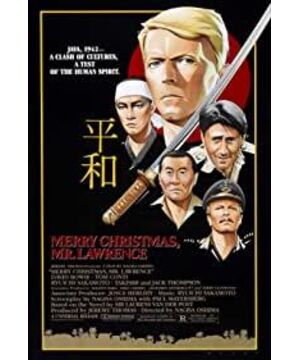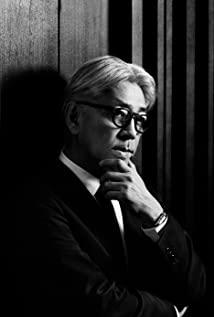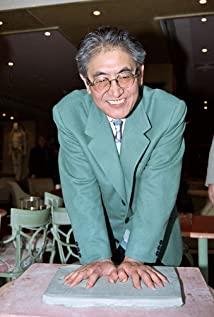Write in front:
1. I am a student who just finished the college entrance examination, located in Guangdong. This article has both Chinese and English original versions, and the selected content mainly focuses on the interaction between yonoi and celliers.
Due to the limited level of translation, there will be deficiencies in translation. I hope someone with a heart/senior will correct me! Thanks! ! ! ! !
2. A small note:
In the original novel, "I" is the witness of celliers' life, which is equivalent to the role of Mr. Lawrence in the movie.
After the war I reunited with Mr. Lawrence and read celliers' confessions and memories of his younger brother in the war; all I know is the undercurrent between yonoi and celliers, and all Lawrence knows is that yonoi asked him to deliver after the war hair. Celliers' account and my side-by-side account for the vast majority of the space.
A. [Yonoi's appearance] [Front description]
At this moment, I am sure: the face of yonoi emerges before our eyes. We all agreed that he was impressive, maybe the most handsome Japanese we've ever met. He had a priestly face, an ascetic look. Though slightly crooked like his kin, his eyes were beautifully shaped and gleamed irresistibly. He is tall and straight. He was the neatest Japanese officer I've ever seen: the uniform was cut to fit, no smudges; the boots were carefully polished and gleaming. He had an air of knowing the difference between himself and others; which we had previously attributed to vanity, and now, I said to Mr. Lawrence, could it be out of a sense of some glory? ——And that glory is too far away to be touched by my generation?
Just then, I am certain we both had Yonoi's face vividly before us. He was a striking person we both agreed, perhaps the most handsome Japanese we had ever seen. He had an ascetic, almost a priestlike face, round head and an aquiline nose . His eyes were well spaced and though slanted in the manner of his race, were brilliantly compelling. He was also taller than most, and straightly made. He was the tidiest Japanese officer I have ever known too, his uniform always well cut and spotless and his jackboots polished and shining. He carried himself with a conscious air of distinction which most of us put down to vanity but which, I now said to Lawrence, may have been concerned with some special notion of honour that was inaccessible to us?
b. [Appearance of celliers] [Indirect description]
...one of the five judges who tried him was yonoi.
As soon as Yonoi's eyes swept across him, celliers noticed a look of interest on his handsome face, which quickly turned to alertness. Similarly—though not as blatantly as the former—the other judges kept their eyes on him. Celliers is almost certain that his presence shatters the Japanese judges' assumptions about his image. In view of his miserable deeds in the rain forests and prisons recorded by kempeitai, they must have condemned him in their hearts before as a foreign devil, so sinful as to show such stubbornness and will to the Japanese Imperial Army. Yet from the beginning all the judges - yonoi most obviously - fell into inconsistency as the celliers' appearance made them hopelessly start to like him.
"It doesn't surprise me," Lawrence chimed in, "that one's appearance comes first in a language barrier. Besides, the Japanese have a natural sensitivity to all kinds of beauty. I can imagine A straffer-like appearance makes them think about how."
The moment Yonoi's eyes fell on him, Celliers noticed a look of interest, quickly transformed into something akin to alarm, appearing on his handsome face. The other judges too, stared at him hard and long though not so strangely as Yonoi. Celliers was certain they had formed a picture of him in their minds which he contradicted. They had already condemned him in their minds from the Kempeitai record of his behaviour in jungle and prison as a foreign devil, evil enough to show a spirit of wilfulness and disobedience to the army of their Exalted Descendant of a Sun-goddess. But from the start Yonoi in particular and the judges in general were disconcerted because his appearance instantly predisposed them into liking him.
'That doesn't surprise me,' Lawrence broke in here. 'In dealing with peoples whose language one cannot speak one's physical appearance can be all important. And the Japanese have a natural eye for beauty of all kinds. I can see clearly how a fellow of" Straffer's" looks would have set their imaginations in motion.'
【Yonoi's improvisation】
'You!' Yonoi said: 'You – you say you come ordered by parachute Java. Who ordered?'
'I received my orders from the Commander-in-Chief India,' Celliers answered.
Pausing only to translate to his fellow judges Yonoi went on:
'You not ordered by General in Java?'
'How could I have been?' Celliers asked. 'I came from Cairo to Colombo and flew from Colombo to Java two months after the surrender. I've never even seen the Commander-in-Chief of Java or had any communication with his officers.'
As he spoke Celliers saw a flash of satisfaction in Yonoi's brilliant eyes. Yonoi turned to his judges to suggest with tact and passion that the charge of' wilfulness' could not be held because Celliers had obeyed, as any soldier must, the orders of his own Commander-in-Chief in India, who was still fighting.
Here's a note: this wilfulness is difficult to translate, and it can be said to be the most serious sin in the eyes of the Japanese, similar to "Soldiers as individuals still resist stubbornly without orders from generals". If the soldier fought on command, he could be accepted as a prisoner of war; but if he fought alone, he would be convicted and executed for this "evil stubbornness."
c. [Lawrence has a very understanding look] [Sweet and abusive]
I can't help myself by picking up the key points of this paragraph! !
...a tall, broad-shouldered figure was shoved into the door. He wears a tattered grass-green uniform and has long hair that is so lush it's almost erotic (?) compared to our bald heads... He tries hard to walk upright without the help of two accompanying soldiers...
... "Yonoi interfered!" Lawrence exclaimed almost in disbelief. After a while, he suddenly asked what seemed the most irrelevant question: "celliers...he's pretty good looking, doesn't he?"
I answered "yes" and asked, "Why?"
Lawrence grinned widely. "I'll explain when the time is right," he assured me, "but I think you've told me the trick - that enigmatic yonoi once asked me to do something. Yes, I just saw it recently. Him. But you can't stop there—please keep talking!"
I went on to tell Lawrence that I'd been standing there at the gates on watch when suddenly they had opened. I'd half expected a company of infantry to come rushing in on one of their prison searches but it had been just a solitary , tall, broad-shouldered figure, which had been pushed in through the doors in a torn jungle-green uniform, with an untidy head of long hair which, after our cropped heads, looked lush to the point of obscenity. He carried an empty shoulder-pack dangling in one hand and a field flash on his hip, while he tried to walk upright without the help of two Kempeitai privates at his side. Even the sentries were surprised. They had seen comings and goings of secret police cars and concluded that something far bigger than the release of a prisoner from secret confinement was contemplated. And in a sense they had been right for I discovered afterwards that that day we were to have been summoned to attend Cellier's execution but that largely due to Yonoi's intervention he had been reprieved at the last moment.
' Yonoi intervened!' Lawrence exclaimed incredulously. He half-whistled and then asked what seemed the most inconsequent of questions: 'Celliers was very fair in colouring, wasn't he?'
'I said "Yes" and then asked: "Why?"'
He smiled one of his grave smiles. 'I'll explain when the right moment comes,' he assured me. 'But I think you've given me the key to something that the enigmatic Yonoi once asked me to do. Yes. I saw Yonoi myself on a later occasion. But you'd left the island by then – Go on!'
Fair in colouuuuuuuuuuuuuuuuuuuuuuuuuuuuuuuuuuur!!!!!!!!!!!!!!! I'm crazy
D.【Yonoi swearing scene】
This... no matter how you turn it, it loses its charm... I'm going to laugh crazy
All this time Yonoi's inquiries after Celliers became ever more impatient. It became no longer a tense question of: 'Sick officer? Health, how? ' but more irritably: 'Sick officer not well? Why? Why not well? Lakas! Quick! Lakas!' One evening towards the end of Celliers's hospital term he was so angry when I reported Celliers as still unfit for prison duty that I thought he was going to hit me. He stood in front of me with a quick intake of breath, hissing between his teeth and rocking his head from side to side. A strange ventriloquist's growl began to rise in his stomach until he screamed: 'Officer not well because your spirit bad! All prisoners spirits bad! Spirit so bad nothing grows in prison gardens! All , all, very, very bad.'
... Yonoi grows impatient with celliers' inquiries. It was no longer a tense question: 'Sick officer? Health, how? ' became more irritated: 'Sick officer not well? Why? Why not well? Lakas! Quick! Lakas!'
... He stood in front of me, taking a deep breath, hissing his teeth, shaking his head angrily. That strange, almost ventriloquist roar came up from his stomach again, and he screamed: 'Officer not well because your spirit bad! All prisoners spirits bad! Spirit so bad nothing grows in prison gardens! All, all, very, very bad.'
Interjection: There is a purpose for yonoi to shout " nothing grows in prison gardens " here, but yonoi thinks it doesn't, but in fact celliers is the sower.
E. [Yonoi's visit to the prison] [Everyone see it in bold] [I won't turn it over]
I was increasingly confounded when the doctor reported to me that from time to time Yonoi would appear without warning in the open entrance of the hospital cantonment. He would stand there looking at the corner where Straffer lay, taking no notice of anyone else. He would just stand there staring at Straffer as if – as one Australian doctor put it to me – they were two of a kind. The doctor added: 'Made me uncomfortable. Something not quite healthy about it.'
The strange thing was that Yonoi's interest never brought him to speak to Straffer on any occasion. After standing there for some time he would summon the doctor in charge and say: 'Officer there: make well!' Finishing in that expressive Malay word: ' Lakas! quick!'
To the effect, yonoi is farsighted, but never talks to celliers.
F. 【Some thoughts】
'Hear what?' I asked alarmed by the urgent tone of his question.
'The music,' he answered.
Puzzled, I listened more intently than ever. Apart from the normal electro-sonics of that tropical island and the throb of its volcanic heart beating at the temples of the thin-skinned earth of the island there was no sound to be heard.
I told him so but he insisted, saying: 'There's the most enchanting music in my ears. It's all around us. It's lovely and it's everywhere.'
This conversation takes place - the equivalent of the movie's ending - when the POWs are lining up and yonoi is on their way. In the novel, celliers' younger brother is dying at the moment, and he heard the same music before he died.
When watching a movie, music is interspersed with important plots; the crystal clear and ethereal melody is almost omnipresent. Does it also echo the phrase "It's all around us. It's lovely and it's everywhere. " in the novel ?
Compared with the movie, the novel gives more space and greater weight to Celliers' memories and narration of his younger brother. The novel highlights his identity as a redeemer, while the film, from a Japanese perspective, embodies the free, fearless, and full of vitality of celliers. Comparing the two is really meaningful.
Celliers gave up his brother because of the cynicism of everyone in the academy. Yonoi's betrayal can be interpreted in two levels: one, he thought he had betrayed his companions in the February 36 Incident, thus bearing the shame of living alone; He was caught in the militarism betrayed love and humanity. This sense of shame closely connects the two - in the movie, celliers sits on the bed uninhibitedly and says "I think I'm the same kind of person as him", in exchange for Lawrence's brows raised suspiciously and knowingly; in the novel, celliers confesses to me : "We are like birds that fell into the same net because of too gorgeous feathers."
They are all souls who have been collectively repressed and unable to express their humanity (or love). And the really beautiful thing is that the former achieves atonement and redemption for the latter through self-destruction.
(tears)
g. [Interpretation of celliers]
"In his life, he felt that the most important thing was to make the universality become the pertinence, let the commonality become the characteristic, let the collective restore the individual, and at the same time let our inner unconscious be conscious."
This passage can be said to be the key to interpreting celliers. We sincerely invite everyone to contribute their own translations!
Here Lawrence pressed me hard to recall everything I could of the conversation, and I became rather embarrassed. At the time when Celliers was talking to me there was a lot that I hadn't understood as I felt I did now. But to try and explain it all to Lawrence made me feel extremely uncomfortable. My whole upbringing and tradition were against so naked a conversation. I think, towards the end, Celliers himself had sensed something of my unspoken reservations, for he had concluded rather abruptly by saying that, As he saw it, he felt the first necessity in life was to make the universal specific, the general particular, the collective individual, and what was unconscious in us conscious.
H. [Death of celliers] [This paragraph is not translated]
In my despair I turned openly to Celliers.
Before I could speak he spoke to me in a low and reassuring voice as if he were still hearing the music in his ear. He said: 'I'm going to stop it now. It'll be all right. But whatever happens do nothing about me. Remember, nothing. Goodbye.'
I did not have time or mind to take in the significance of that 'good-bye', nor recognize it then as a clear indication of his knowledge of what the end was going to be for him for as he spoke he stepped out of the ranks his new hat at a rakish angle on his head and the sun flashing on its mutilated badge. He walked, as Lawrence had already remarked, most beautifully. Without hurry he advanced on Yonoi as if he were going across a paddock at home to do no more than take a high-spirited stallion in hand.
The effect among our prison ranks was startling. No sound broke from us but the atmosphere became unlocked and flowing. I knew that without even looking round. Celliers's reputation had already spread throughout the camp and hope flared up in our ranks again. Even I, though I had no idea what he could or would do, found a too-sweet excitement going through me as I watched his easy almost nonchalant approach. It was truly wonderful; perfectly timed and executed. Anything faster would have slower alarmed them. Anything given them time to recover. Anything before that moment would have failed for Yonoi and his men still would have been free to rush forward and stop him. But finding themselves abandoned by the conclusion they thought foregone they hesitated and just gaped at Celliers, waiting for Yonoi to give them the lead.
When Yonoi opened his eyes again after his short prayer to the spirit, the Maru of his sword, Celliers was barely fifteen yards away. Amazement like the shock of a head-long collision went through him. Going white in the process he stared in a blank unbelieving way at Celliers. For the first time in days he was compelled, because of the unfathomed identification between Celliers and himself, to see someone outside himself.
Amazement then gave way to consternation and he cried out a command in English that was also a plea: 'You – officer – go – back, go back, go back!'
But Celliers went on to place himself between Hicksley-Ellis and Yonoi and said something quietly and unhurriedly to Yonoi.
Yonoi appeared not to have heard him. He shrieked again: 'You – go back, back, back!' like someone trying to scare a ghost.
Celliers shook his head quietly and went on staring at him steadily as a disarmed hunter might stare a growling lion straight in the face. Perhaps more in terror than in anger, Yonoi raised his sword and knocked Celliers down with the flat of it. The crack on his head rang out like a pistol-shot to be followed by another exhortation to Celliers to go back. Dazed, Celliers struggled to his feet, swayed and half-turned as if to obey – then swung around suddenly. He took a couple of paces back towards Yonoi, put his hands on Yonoi's arms and embraced him on both cheeks rather like a French general embracing a soldier after a decoration for valour.
The shock of this strange action was unbelievable. I do not know who apart from Yonoi was shocked the most: the Japanese or ourselves.
“He walked, as Lawrence had already remarked, most beautifully.”
Unforgettable is only a moment.
I don't know what his goodbye means.
There was not a single prisoner of war present, a Japanese soldier knew that in the heart of this thin and lonely man, the silent music played
There was no one who could catch up with him, who could pull him and stop him.
Celliers was never aware of his deadly allure. He had grown accustomed to flashing in debauched solitude.
His walk was unhurried, just perfect to reach yonoi, his sin, and his death.
i. 【About the ending】
My favorite endings all have the meaning of "opening" and "fading", the narrative ends gracefully and the aftertaste lingers, such as The Great Gatsby, Alive, All Quiet on the Western Front.
Lawerence: "The Japanese unconsciously chose sand torture, which just revealed the recognition of the seeds planted by celliers' actions. They erected him upright in the sand; he was later offered by yonoi in a temple in the mountains; And now, that seed is still alive and thriving in your heart and mine."
'You see,' Lawrence said to me now, his voice low with feeling: 'the seed sown by brother in brother in that far-off homeland was planted in many places. It was planted that day in your prison in Java. Yes, even in the manner they killed Celliers his enemies acted out their unwitting recognition of the seed of his deed, for they did not only bury him alive but planted him upright like a new young growth in the earth. Even the manner of their denial of the deed was confirmation of what was rejected. He was planted again by Yonoi on the hills and spirit of his native country, and here again the seed is alive and growing in you and me.'
I'm sure we'd keep talking if my wife hadn't come home and interrupted us with chores. When I went to check the last window on the roof, I stood for a moment, staring at the setting sun. Yes, the great and solemn grey calm of Christmas will soon fade away, and the tattered clouds are coming towards us in the yellow sky of the southwest. What a joy to be able to perceive that things in nature are so free and wild, in turmoil. I still stand there, welcoming the storm with all my heart, as the celliers, returning from the many places where he was born, raised, died, buried, and fed, stood alive again behind me; as his voice was in my ears again "The wind and the gods, the earth and the soul, the rain and all things, the thunder and the word, the seed and the sower, are all one; and the only thing necessary for man is to choose his seed and pray for its inner The sower who sows them with his deeds and signs, and the harvest that follows will be great and plentiful."
I believe he might have gone on had my wife not entered the room just then and asked me to see to the windows and doors because a wireless warning had come through that a great gale was bearing down on us fast. When I came to check on the last window at the top of the house I stood there for a while looking out at the dying day.Yes, the great grey calm of Christmas was breaking fast. In the south-west against the pale yellow sky the clouds, ragged and torn, were coming racing towards us. The elements were loose and wild with movement and how good it was to know them once more on the move. I stood there with a heart full of welcome for the storm and it was as if Celliers had come again from all those many places in which he had been born, lived, died, been buried and enshrined, to stand behind me renewed and reintegrated, saying clearly in my ear: 'Wind and spirit, earth and being, rain and doing, lightning and awareness imperative, thunder and the word, seed and sower, all are one: and it is necessary only for man to ask for his seed to be chosen and to pray for the sower within to sow it through the deed and act of himself,and then the harvest for all will be golden and great.'
Explanation: Celliers was imprisoned by a storm on the island of Java, which he said was his "favorite".
Thanks for reading!
View more about Merry Christmas Mr. Lawrence reviews











